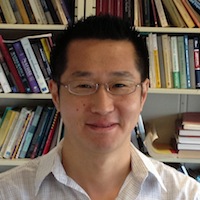Department of Mathematics
Mathematics Colloquium - Spring 2010
Monday, May 3rd, 2010
3:00pm - 4:00pm, in Science 2-065
3:00pm - 4:00pm, in Science 2-065
Shuang Cai
UMass BostonA simple definition of algebraic connective K-theory
Abstract:
The techniques of homology have been bringing many critical progresses in the study of algebraic geometry and therefore constitute a central player in the field. Two homology theories, the Chow groups and the algebraic K-groups, owing to their universal properties and the arithmetic results they can extract from varieties, are particularly interesting groups to algebraic geometers.
An intriguing and consequential question is understanding the relations between the two aforementioned homology theories. The algebraic connective K-theory provides a proper setting to address this issue. The formal definition of connective K-theory, however, makes things almost impossible to work with.
In this work, we seek a definition of the algebraic connective K-groups that may be more friendly. Such groups' universal property prompt us to locate the candidate in the Gerstein-Brown-Quillen spectral sequence which bear natural relations to the Chow and K-groups. Specifically, we examine the image of the natural maps: $K_n(\mathcal{M}_{p-1}(X)) \longrightarrow K_n(\mathcal{M}_p(X))$, where $\mathcal{M}_p(X)$ is the category of sheaves on a variety $X$ with support of dimension no greater than $p$. We denote this image by $CK_{p,n-p}(X)$. These groups admit natural maps to the Chow and K-groups. We verify that they indeed form a homology theory and prove that their relations to the Chow and K-groups are what is to be expected from the connective K-groups.
 |
Department of Mathematics University of Massachusetts Boston Phone: 617-287-6460; Fax: 617-287-6433 Information: math@umb.edu |
||
